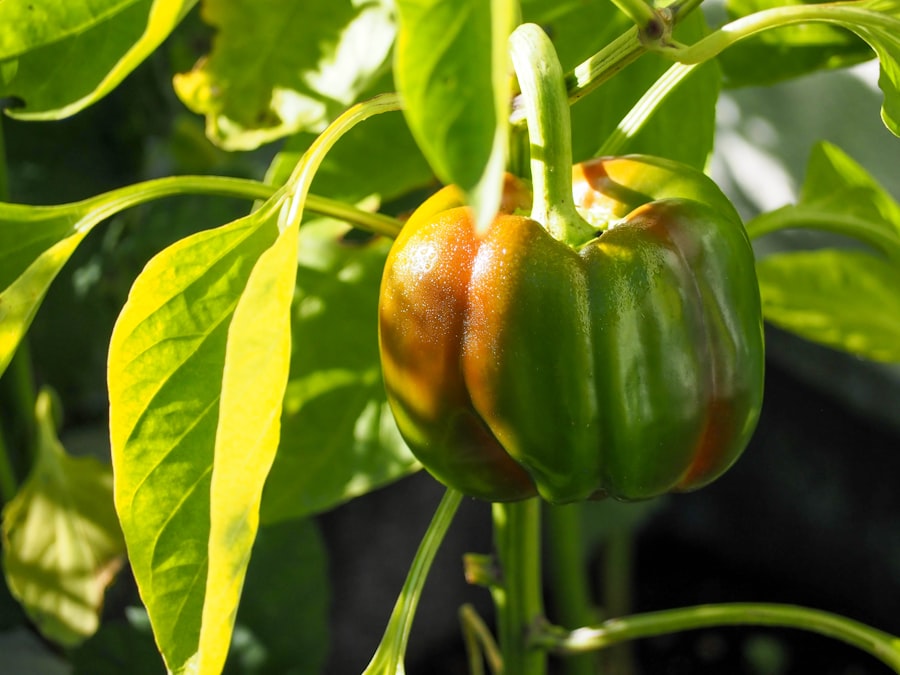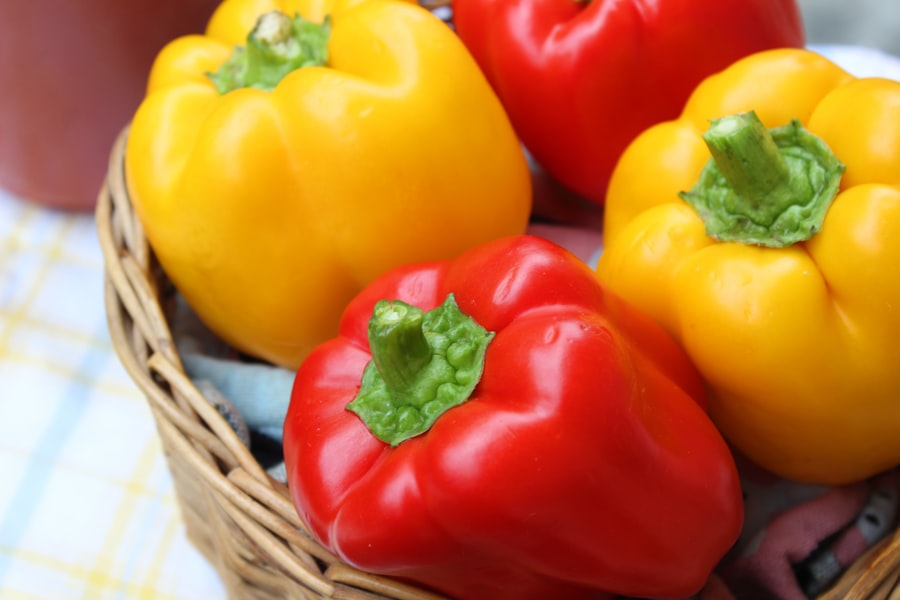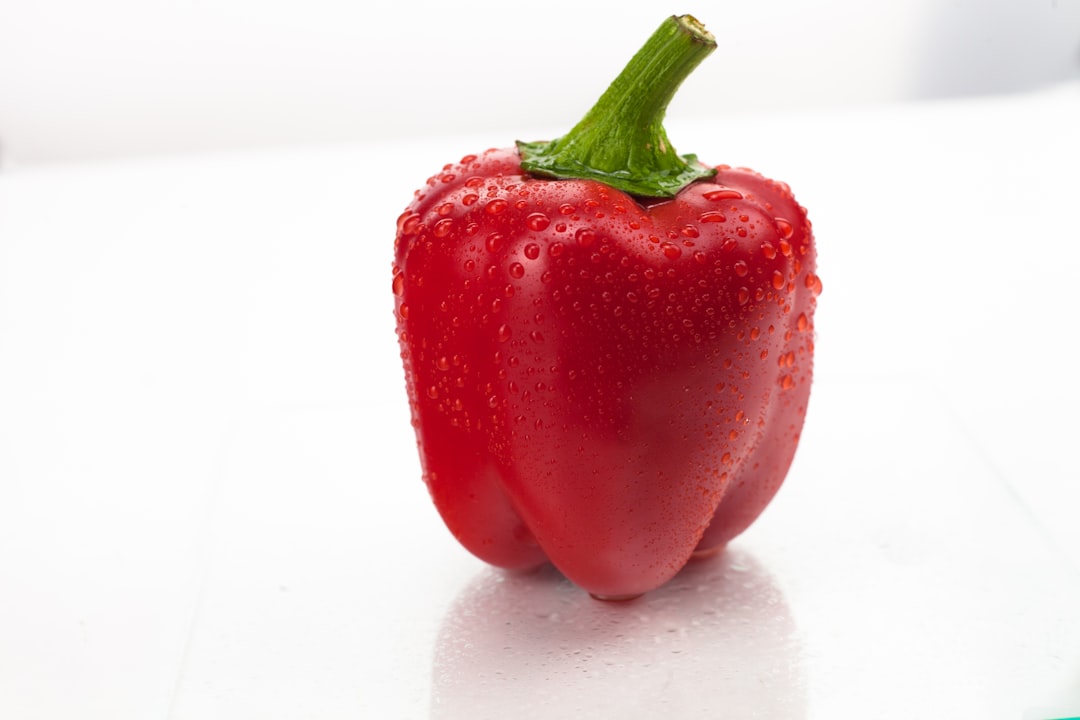Green bell peppers are a vibrant addition to many dishes, offering a crisp texture and a slightly bitter flavor that can enhance salads, stir-fries, and salsas. However, for some individuals, these colorful vegetables can lead to unexpected digestive discomfort. If you’ve ever experienced bloating, gas, or stomach cramps after enjoying a meal featuring green bell peppers, you’re not alone.
Understanding the reasons behind these digestive woes can help you enjoy this nutritious vegetable without the unpleasant side effects. In this article, you will explore the various factors that contribute to digestive issues associated with green bell peppers. From their fiber content to potential enzyme deficiencies, you’ll gain insights into why these peppers may not sit well with your stomach.
Additionally, you’ll discover practical solutions and dietary adjustments that can help alleviate discomfort, allowing you to savor the benefits of green bell peppers without the accompanying digestive distress.
Key Takeaways
- Green bell peppers can cause digestive issues for some individuals
- The high fiber content in green bell peppers can lead to digestive discomfort
- Enzyme deficiency may contribute to difficulties in digesting green bell peppers
- Green bell peppers can exacerbate symptoms of irritable bowel syndrome
- Cooking methods and dietary adjustments can help improve green bell pepper digestion
Causes of Digestive Issues from Green Bell Peppers
One of the primary reasons green bell peppers can cause digestive issues is their high fiber content. While fiber is essential for maintaining a healthy digestive system, consuming it in large amounts or suddenly increasing your intake can lead to bloating and gas. If you’re not accustomed to a high-fiber diet, introducing green bell peppers without gradually increasing your fiber intake may overwhelm your digestive system.
This sudden change can result in discomfort as your body struggles to process the additional fiber. Another contributing factor is the presence of certain compounds in green bell peppers, such as lectins and solanine. These naturally occurring substances can be difficult for some individuals to digest, leading to gastrointestinal distress.
If you have a sensitive stomach or a predisposition to digestive issues, these compounds may exacerbate your symptoms. Understanding these causes is the first step toward finding relief and enjoying green bell peppers without fear of discomfort.
The Role of Fiber in Green Bell Peppers

Fiber plays a crucial role in digestion, promoting regular bowel movements and supporting gut health. Green bell peppers are an excellent source of both soluble and insoluble fiber, which can aid in digestion when consumed in moderation. Soluble fiber helps to soften stool and can slow down digestion, while insoluble fiber adds bulk to stool and promotes its passage through the intestines.
However, if you’re not used to consuming high-fiber foods, the sudden introduction of green bell peppers may lead to an overload of fiber in your system. When you consume green bell peppers, it’s essential to consider your overall fiber intake throughout the day. If you’re already eating a fiber-rich diet, adding more fiber from green bell peppers may push your digestive system over the edge.
To mitigate this issue, it’s advisable to gradually incorporate these peppers into your meals while balancing them with other foods that are easier on your stomach. This approach allows your body to adjust to the increased fiber intake without causing discomfort.
Enzyme Deficiency and Green Bell Pepper Digestion
| Enzyme Deficiency and Green Bell Pepper Digestion | ||
|---|---|---|
| Enzyme | Function | Impact on Green Bell Pepper Digestion |
| Lipase | Breaks down fats | Helps in digesting the fat content in green bell peppers |
| Protease | Breaks down proteins | Aids in breaking down the protein in green bell peppers |
| Amylase | Breaks down carbohydrates | Assists in digesting the carbohydrate content in green bell peppers |
Enzymes play a vital role in breaking down food in your digestive system. If your body lacks specific enzymes necessary for digesting certain foods, including green bell peppers, you may experience digestive issues such as bloating or gas. For instance, some individuals may have difficulty breaking down complex carbohydrates found in vegetables like bell peppers due to insufficient amylase or other digestive enzymes.
If you suspect that enzyme deficiency is contributing to your digestive woes after consuming green bell peppers, it may be worth exploring enzyme supplements or discussing this with a healthcare professional. By addressing any potential enzyme deficiencies, you can improve your ability to digest these nutritious vegetables and enjoy their health benefits without discomfort.
Irritable Bowel Syndrome and Green Bell Peppers
Irritable Bowel Syndrome (IBS) is a common gastrointestinal disorder that affects many individuals worldwide. If you have IBS, you may find that certain foods trigger your symptoms, and green bell peppers could be one of those culprits. The high fiber content and specific compounds in bell peppers can irritate the gut lining for some people with IBS, leading to symptoms such as cramping, bloating, and diarrhea.
If you have IBS and notice that green bell peppers consistently cause digestive issues, it may be beneficial to keep a food diary. Tracking your meals and symptoms can help identify patterns and determine whether green bell peppers are a trigger for you. Consulting with a healthcare professional or a registered dietitian can also provide valuable insights into managing IBS symptoms while still enjoying a varied diet.
Solutions for Green Bell Pepper Digestion Woes

Fortunately, there are several strategies you can employ to alleviate digestive issues associated with green bell peppers. One effective approach is to start with small portions and gradually increase your intake over time. This method allows your digestive system to adapt to the fiber content without overwhelming it.
Additionally, consider pairing green bell peppers with other foods that are easier on the stomach, such as lean proteins or whole grains. Another solution is to ensure that you chew your food thoroughly before swallowing. Chewing breaks down food into smaller particles, making it easier for your digestive enzymes to do their job effectively.
Taking your time during meals and savoring each bite can significantly improve digestion and reduce the likelihood of discomfort after consuming green bell peppers.
Cooking Methods to Improve Green Bell Pepper Digestion
The way you prepare green bell peppers can also impact their digestibility. Cooking methods such as steaming or sautéing can help break down the tough cell walls of the peppers, making them easier for your body to digest. When you cook green bell peppers, you soften their texture and reduce some of the compounds that may cause irritation in sensitive individuals.
Roasting is another excellent cooking method that enhances the flavor of green bell peppers while making them more digestible. The caramelization process that occurs during roasting not only adds depth to their taste but also helps break down some of the fibrous components that can lead to digestive discomfort. Experimenting with different cooking techniques can help you find the best way to enjoy green bell peppers without experiencing any adverse effects.
Dietary Adjustments for Green Bell Pepper Digestion
In addition to cooking methods, making dietary adjustments can further improve your experience with green bell peppers. If you find that raw green bell peppers consistently cause discomfort, consider incorporating them into cooked dishes instead. Cooking not only enhances their flavor but also makes them gentler on your digestive system.
You might also want to balance your meals by including other easily digestible foods alongside green bell peppers. For instance, pairing them with rice or quinoa can create a satisfying meal while minimizing potential digestive issues. Additionally, incorporating probiotic-rich foods like yogurt or fermented vegetables into your diet can support gut health and improve overall digestion.
Supplements and Digestive Aids for Green Bell Pepper Consumption
If you continue to experience digestive issues despite making dietary adjustments and cooking changes, consider exploring supplements or digestive aids designed to support digestion. Enzyme supplements containing amylase or other digestive enzymes may help break down complex carbohydrates found in green bell peppers more effectively. Probiotics are another option worth considering.
These beneficial bacteria can help balance gut flora and improve digestion overall. By introducing probiotics into your routine, you may find that your body becomes more adept at processing various foods, including green bell peppers.
Seeking Medical Advice for Green Bell Pepper Digestion Issues
If you’ve tried various strategies and still struggle with digestive issues after consuming green bell peppers, it may be time to seek medical advice. A healthcare professional can help identify any underlying conditions or sensitivities that may be contributing to your discomfort. They may recommend tests or dietary changes tailored specifically to your needs.
Additionally, working with a registered dietitian can provide personalized guidance on managing your diet while addressing any digestive concerns related to green bell peppers or other foods. With their expertise, you can develop a plan that allows you to enjoy a diverse range of foods without compromising your digestive health.
Conclusion and Final Tips for Managing Green Bell Pepper Digestion Woes
In conclusion, while green bell peppers are a nutritious addition to many meals, they can pose challenges for some individuals when it comes to digestion. By understanding the causes of these issues—such as fiber content, enzyme deficiencies, and conditions like IBS—you can take proactive steps toward alleviating discomfort.
Remember that everyone’s digestive system is unique; what works for one person may not work for another. By listening to your body and seeking professional guidance when needed, you can navigate your way through any digestion woes associated with green bell peppers and continue enjoying their vibrant flavor and health benefits in your meals.
Green bell peppers are a common ingredient in many dishes, but for some individuals, they can cause digestive discomfort. This can be due to the presence of certain compounds in the peppers that are difficult for some people to digest. For those experiencing such issues, it might be helpful to explore dietary adjustments or alternatives. An article that delves into digestive health and offers insights into managing such problems can be found on Explore Senior Health. You can read more about it by visiting this exploreseniorhealth.
com/’>related article.
Over 60? Ditch THIS Sneaky Veggie Wrecking Digestion, Bloating, and Microbiome Balance.
FAQs
What are the common digestion problems associated with green bell peppers?
Green bell peppers contain a compound called capsaicin, which can cause digestive issues such as heartburn, acid reflux, and stomach irritation in some individuals.
Why do green bell peppers cause digestion problems for some people?
The capsaicin in green bell peppers can irritate the lining of the stomach and esophagus, leading to symptoms such as heartburn and acid reflux. Additionally, the high fiber content in bell peppers can cause bloating and gas in some individuals.
How can I reduce digestion problems when consuming green bell peppers?
To reduce digestion problems when consuming green bell peppers, you can try removing the seeds and membranes, which contain the highest concentration of capsaicin. Additionally, cooking the peppers can help break down some of the compounds that may cause digestive issues.
Are there any health benefits to consuming green bell peppers despite the digestion problems?
Yes, green bell peppers are a good source of vitamins A and C, as well as fiber and antioxidants. They can be a healthy addition to a balanced diet, and for many people, the digestive issues are mild and manageable.
When should I see a doctor about digestion problems related to green bell peppers?
If you experience severe or persistent digestive issues after consuming green bell peppers, such as intense stomach pain, vomiting, or difficulty swallowing, it is important to seek medical attention. These symptoms may indicate a more serious underlying condition.
